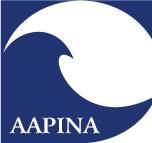Asian/Pacific Island Nursing Journal
The official journal of the Asian American / Pacific Islander Nurses Association (AAPINA), devoted to the exchange of knowledge in relation to Asian and Pacific Islander health and nursing care.
Editor-in-Chief:
Hyochol Brian Ahn, PhD, APRN, ANP-BC, FAAN, Dean and Professor, The University of Arizona College of Nursing, USA
CiteScore 2.6
Recent Articles




Preceptorship programs have been implemented in several hospitals across Indonesia to support new nurses during their transition period in the workplace. Many factors influence new nurses in successfully transitioning into this new role. However, few studies examined the factors that affect new nurses' competency.

Persons with disabilities (PWDs) in rural northern Thailand face significant challenges in accessing appropriate support, particularly in Chiang Mai’s rural community, where limited infrastructure and socio-economic barriers hinder their independence. Home adaptations (HAs) and assistive products (APs) play a crucial role in enhancing the safety and quality of life; however, perspectives on their use remain underexplored.

Nurses play a pivotal role in healthcare delivery and health education. However, their demanding work environments characterized by irregular shifts and high stress often hinder their ability to adopt healthy lifestyles, compromising both their well being and their effectiveness as role models for health promotion. With the rise of digital health technologies, eHealth literacy the capacity to seek, evaluate, and apply online health information has emerged as a critical factor influencing health promoting behaviors among healthcare professionals.



















